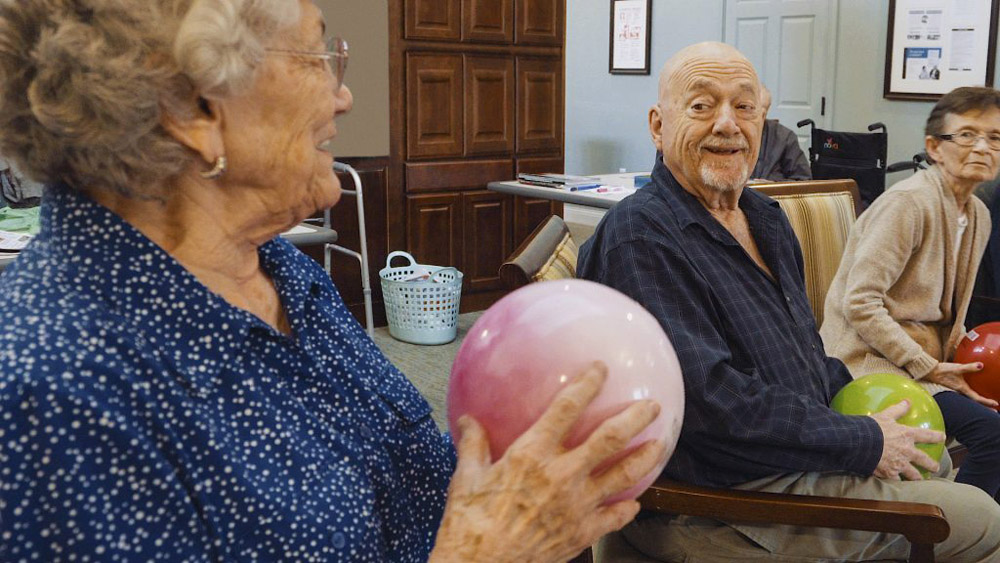Memory Care Explained: Comprehending Services That Make a Distinction
Memory care services have become an important source for people grappling with cognitive problems, such as Alzheimer's and mental deterioration. These specialized programs not just supply safe and secure environments and experienced personnel but likewise integrate customized activities that improve cognitive interaction and emotional wellness. Understanding the range of treatments and support systems readily available is essential for families steering via these complicated choices. As we discover the different components that add to reliable memory care, it comes to be clear that the best selections can greatly influence the lifestyle for both residents and their households.
Summary of Memory Care

Specialized Therapies Available
Numerous specialized treatments are available within memory care services, each tailored to attend to the special difficulties encountered by people with cognitive problems. These therapies intend to boost cognitive functioning, promote psychological well-being, and boost overall high quality of life.One favored technique is memory treatment, which urges people to mirror on previous experiences via photos, music, and familiar items. This method can evoke memories, boost discussion, and foster links with caregivers and peers.Another effective therapy is cognitive stimulation therapy (CST), designed to involve people in psychological exercises that promote cognitive skills and social interaction. CST sessions commonly include challenges, quizzes, and conversations, offering structured cognitive challenges that help maintain psychological agility.Art and music therapy are also integral elements of memory care. These treatments leverage creative expression to help with communication and psychological release, frequently benefiting those that might fight with verbal communication.Additionally, animal-assisted therapy has actually gained acknowledgment for its capability to lower anxiousness and advertise social interaction with the existence of treatment pets. Collectively, these specialized therapies play a crucial duty in enhancing the lives of people with memory impairment, cultivating a supportive and enriching setting.
Engaging Tasks and Programs
Engaging tasks and programs play a necessary duty in memory care services, supplying individuals stimulating chances that advertise cognitive interaction and social communication. Tailored to the special demands of residents, these tasks consist of arts and crafts, music therapy, memory games, and physical workouts. Such programs are created not only to boost cognitive function yet also to cultivate a sense of achievement and community (Memory Care Charlotte).Social communication is an important component of memory care, as it helps in reducing sensations of isolation and anxiety typically experienced by people with memory problems. Group tasks encourage interaction and cooperation, creating an atmosphere where citizens can share experiences and build relationships.Moreover, engaging activities can be adapted to differing levels of cognitive capacity, making certain that all participants can participate meaningfully. Employee learnt memory care promote these programs, supplying assistance and inspiration tailored to each individual's capabilities.Incorporating acquainted routines and interests into these activities can additionally boost their performance, aiding residents link with their past and preserve a feeling of identity. Generally, an all-around variety of interesting tasks enriches the lives of those in memory care, adding to their general wellness and top quality of life
Relevance of Family Members Support

Choosing the Right Center
Picking the ideal memory care facility is a crucial decision that requires careful consideration of various aspects. Assess the degree of care your enjoyed one demands. Facilities vary in their offerings, from standard assistance to specialized memory care programs tailored for conditions such as Alzheimer's and various other dementias.Next, take into consideration the atmosphere of the center. An inviting, protect, and comfortable ambience can substantially influence a resident's well-being. Browse through capacity facilities to evaluate their sanitation, safety attributes, and overall setting. Observe personnel communications with citizens, as compassionate and trained caretakers are essential to top quality care.Additionally, make inquiries regarding the center's staffing ratios and credentials. Memory Care Charlotte. Enough staffing guarantees individualized focus and timely reactions to homeowners' needs. Examine the schedule of activities and programs that advertise engagement, socialization, and cognitive stimulation, as these are critical for maintaining high quality of life
Regularly Asked Questions
What Is the Expense of Memory Care Solutions?
The price of memory care services varies substantially based upon location, facility kind, and level of care needed. Usually, family members can expect to pay between $4,000 and $7,000 each month - Memory Care. These expenses usually encompass real estate, dishes, personal care, and specialized assistance for memory-related conditions. It is essential for families to study choices completely and think about economic support this contact form programs, insurance coverage, and potential long-term care planning to manage these expenses effectively

Just How Is Team Trained to Handle Memory Care Residents?
Staff training for memory care residents is detailed and specialized, concentrating on recognizing the one-of-a-kind requirements of individuals with cognitive problems. Programs commonly include education on dementia-related problems, interaction techniques, habits monitoring, and emotional assistance techniques. Training also stresses the significance of developing a secure and stimulating atmosphere. Recurring education and hands-on experience assurance staff are equipped to offer caring care, cultivating self-respect and regard for residents while promoting their overall wellness.
Are Memory Care Facilities Certified and Regulated?
Yes, memory care centers undergo licensing and governing oversight, which differs by state - Memory Care. These laws ensure that facilities meet certain standards associated to safety and security, care high quality, staffing, and resident legal rights. Commonly, state health departments or regulatory bodies carry out assessments and monitor conformity to protect locals with memory disabilities. Prospective citizens and family members ought to verify a facility's licensing standing and governing background to establish ample care and assistance services are provided
Can Residents Personalize Their Living Spaces?
Yes, homeowners in memory care facilities commonly have the chance to personalize their living spaces. This personalization might include choosing decorations, organizing furnishings, or presenting individual belongings, which can help create a sense of familiarity and convenience. Such modification is urged to advertise individuality and enhance the psychological well-being of homeowners. Any kind of modifications are typically subject to center guidelines to assure security and keep a helpful setting for all locals.
What Are the Seeing Hours for Family Members?
Seeing hours for household participants are commonly established to guarantee that citizens obtain ideal care while keeping significant links with their loved ones. These hours may differ by center, but typically, visitation is enabled during assigned times, often in the afternoon and early night. Alzheimer’s Care. It is recommended for family members to verify particular seeing hours with the center to guarantee compliance with any type of plans in area, in addition to to boost the total experience for both residents and visitors
Comments on “Parent’s Emotional Health is Safer With Dementia Care”